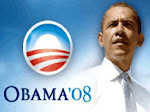In 2005, federal authorities concluded that a Monsanto consultant had visited the home of an Indonesian official and, with the approval of a senior company executive, handed over an envelope stuffed with hundred-dollar bills. The money was meant as a bribe to win looser environmental regulations for Monsanto’s cotton crops, according to a court document. Monsanto was also caught concealing the bribe with fake invoices.
A few years earlier, in the age of Enron, these kinds of charges would probably have resulted in a criminal indictment. Instead, Monsanto was allowed to pay $1 million and avoid criminal prosecution by entering into a monitoring agreement with the Justice Department.
In a major shift of policy, the Justice Department, once known for taking down giant corporations, including the accounting firm Arthur Andersen, has put off prosecuting more than 50 companies suspected of wrongdoing over the last three years.
Instead, many companies, from boutique outfits to immense corporations like American Express, have avoided the cost and stigma of defending themselves against criminal charges with a so-called deferred prosecution agreement, which allows the government to collect fines (bribes) and appoint an outside monitor to impose internal reforms without going through a trial. (I would bet Siegelman would have liked a similar deal) In many cases, the name of the monitor and the details of the agreement are kept secret.
Deferred prosecutions have become a favorite tool of the Bush administration. But some legal experts now wonder if the policy shift has led companies, in particular financial institutions now under investigation for their roles in the subprime mortgage debacle, to test the limits of corporate anti-fraud laws.
Firms have readily agreed to the deferred prosecutions, (well, DUH!) said Vikramaditya S. Khanna, a law professor at the University of Michigan who has studied their use, because “clearly it avoids a bigger headache for them.” (The Rule of Law is a headache?)
http://www.nytimes.com/2008/04/09/washington/09justice.html
Just read between the lines...
Red Text is the real story hiding between the lines.
Violet Text is a notable quote from a specific blogger.
Blue Text is my own personal commentary.
Gold Text is a link to the original sources.
One word of advice I would offer to everyone who reads this blog;
....Each and every day, take just a moment of your precious time to pray for Peace and Justice.
Violet Text is a notable quote from a specific blogger.
Blue Text is my own personal commentary.
Gold Text is a link to the original sources.
One word of advice I would offer to everyone who reads this blog;
....Each and every day, take just a moment of your precious time to pray for Peace and Justice.








